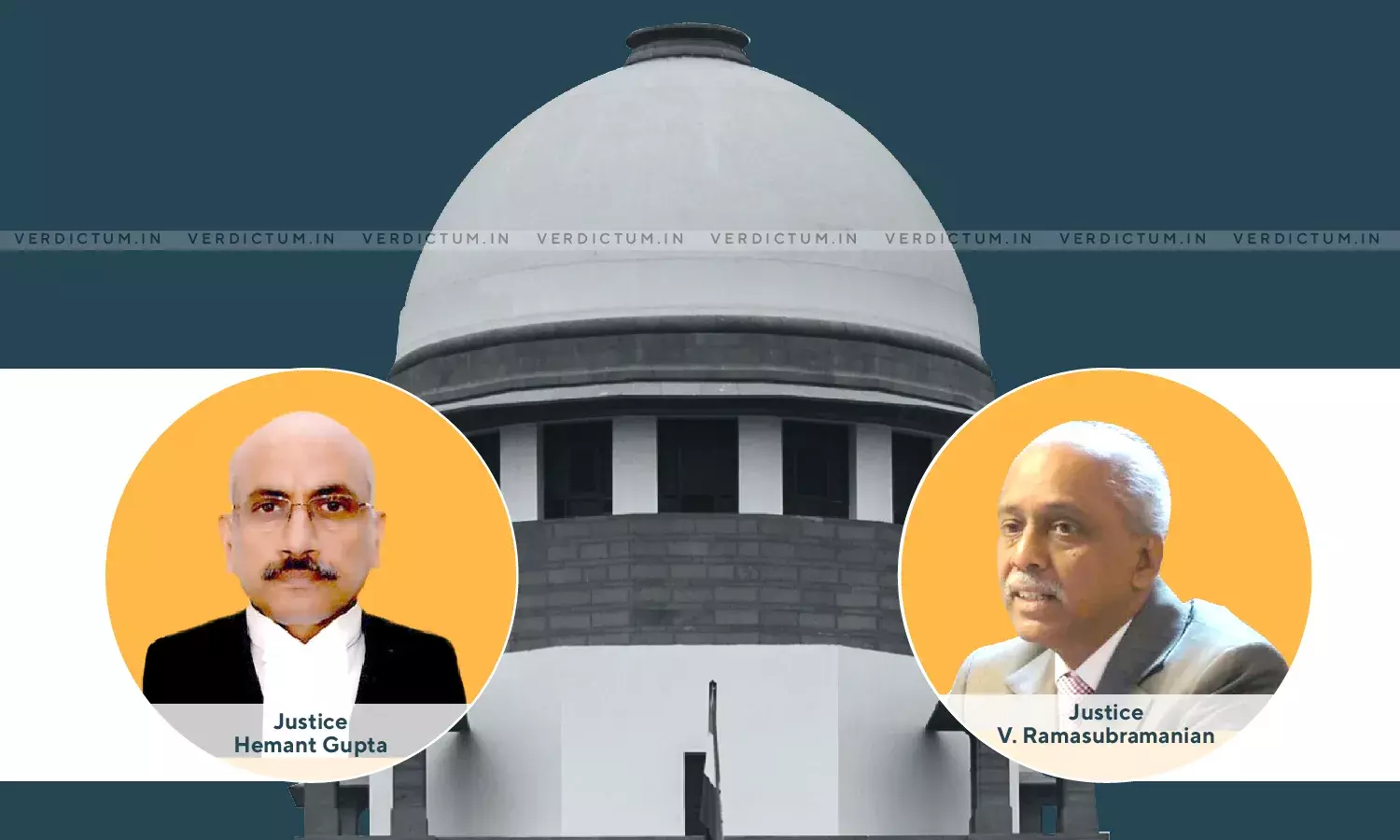Waqf Tribunal Can Adjudicate Dispute Of Property Even If It Is Admitted To Be A Waqf Property: Supreme Court

A Bench of the Supreme Court consisting of Justice Hemant Gupta and Justice V. Ramasubramanian has held that the Waqf Tribunal can adjudicate the dispute of the property even if it is admitted to be a Waqf property.
The Bench observed that "It is well settled that the court cannot do violence to the express language of the statute. Section 83(1) even as it stood before the amendment, provided for the determination by the Tribunal, of any dispute, question or other matter (i) relating to a waqf; and (ii) relating to a waqf property. Therefore to say that the Tribunal will have jurisdiction only if the subject property is disputed to be a waqf property and not if it is admitted to be a waqf property, is indigestible in the teeth of Section 83(1)."
In this case, the Respondent had filed a suit on the file of a Civil Court praying for the reliefs of a mandatory injunction directing the defendants to remove the door and encroachment made by them behind the shops of the plaintiff and to repair the broken back wall of the plaintiff's shop. He also sought a perpetual injunction restraining the defendants from interfering with the plaintiff's possession of the property described therein.
The Appellant (Defendant No.1 in the suit) filed a written statement, admitting that the property in respect of which perpetual injunction was sought, was the waqf property and after admitting the property to be a waqf property, the appellant filed an application under Order VII, Rule 11 of the Civil Procedure Code on the sole ground that a suit for injunction could be filed only before the Waqf Tribunal.
This application for rejection of the plaint was allowed by the Trial Court and the suit was dismissed. The First Appellate Court confirmed the same but on a Second Appeal, the High Court set aside the judgments of the Trial Court and the First Appellate Court with a direction to the Civil Court to proceed in accordance with law. The reasoning of the High Court was that there was no dispute with regard to the property being a waqf property or the nature of the property and that therefore Civil Court will have jurisdiction.
After hearing the parties, the Bench set aside the judgment of the High Court and decided a question whether a suit for a permanent injunction before a Civil Court is not barred by Section 85 of the Waqf Act, 1995. The Bench observed,
"In the case on hand, the property is admitted to be a waqf property. Therefore, to allow the plaintiff to ignore the Waqf Tribunal and to seek a decree of permanent injunction and mandatory injunction from a civil court, would be ignore the mandate of Section 83 and 85 which speak of any dispute, question or other matter relating to a waqf or a waqf property."
The Bench further observed that
"There is also one more issue. In the written statement, the Defendant No.1 has admitted the existence of the waqf and also admitted that the father of the plaintiff by name Riyaz Ahmad is the mutawalli. But the claim of the plaintiff that he is the beneficiary of the waqf has been denied. Therefore, a question as to the nature of the waqf and whether the plaintiff is a beneficiary of the waqf, has also arisen in this case. This question has necessarily to be decided by the Tribunal and not the civil court."
The Bench stated that after Amendment Act 27 of 2013, even the eviction of a tenant or determination of the rights and obligation of the lessor and lessee of such property, come within the purview of the Tribunal.
"We have already seen that it is not as though there was no provision in the Waqf Act conferring jurisdiction upon the Tribunal in respect of the waqf property. We can break the first part of Section 83 into two limbs, the first concerning the determination of any dispute, question or other matter relating to a waqf and the second, concerning the determination of any dispute, question or other matter relating to a waqf property. After Amendment Act 27 of 2013, even the eviction of a tenant or determination of the rights and obligation of the lessor and lessee of such property, come within the purview of the Tribunal."
It further stated, "Though the proceedings out of which the present appeal arises, were instituted before the Amendment Act, the words "any dispute, question or other matter relating to a waqf or waqf property" are sufficient to cover any dispute, question or other matter relating to a waqf property."
The Bench asserted that the dichotomy created in some decisions of this court, between the properties which are admitted to be waqf properties and properties which are disputed to be so, is on account of the misapplication of the two limited questions in Sections 6(1) and 7(1) to the whole of the Act including section 83.
"At the cost of repetition we should point out that Section 83(1) provides for the determination of any dispute, question or any other matter, (i) relating to a waqf and (ii) relating to a waqf property. This prescription cannot be taken to have been curtailed or circumscribed by Sections 6(1) and 7(1), to come to the conclusion that the Tribunal will assume jurisdiction only when a property is disputed to be a waqf property."
As per Section 6 (1) of the Act the Tribunal can decide If any question arises whether a particular property specified as wakf property in the list of wakfs is wakf property or not. Section 7 (1) of the Act stipulates Power of Tribunal to determine disputes regarding wakfs.
Case : Rashid Wali Beg Versus Farid Pindari & Ors.
Click Here to Read/Download Judgment

